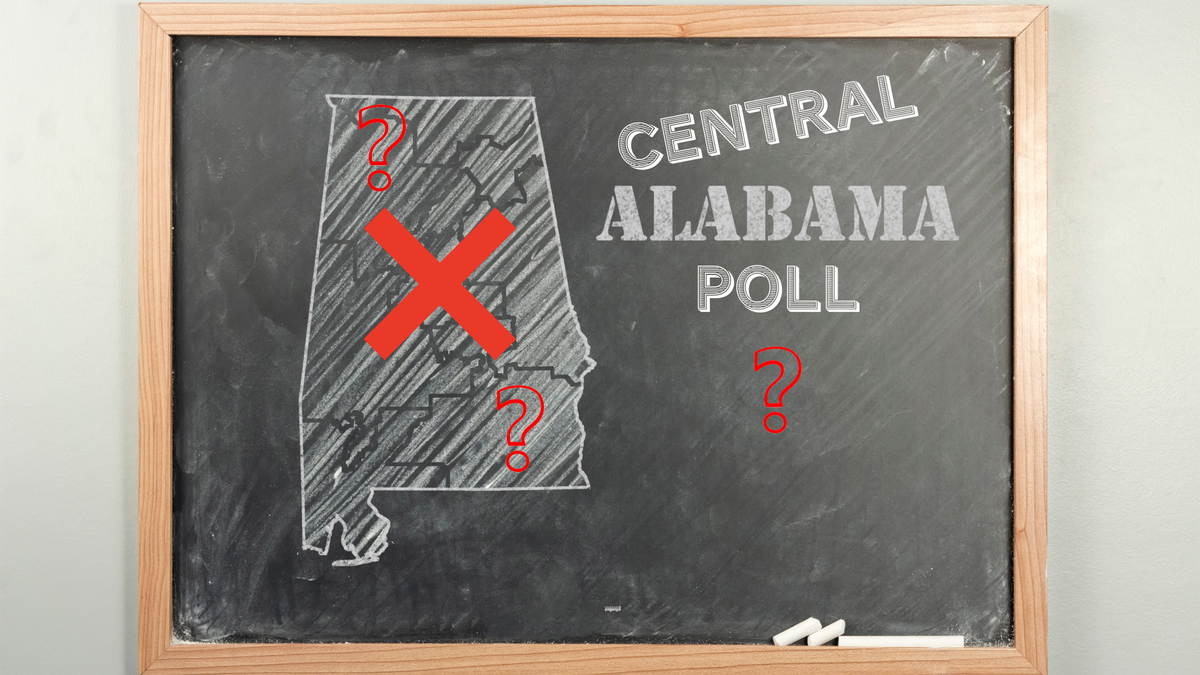BREAKING: ALPolitics Analysis Reveals Poll Oversampled Central Alabama, Inflating Polling Numbers
“If nearly half your respondents are from one metro area, the poll doesn’t measure statewide support, it measures who’s best known in Birmingham."

A new GOP primary poll released last week by Quantus Insights claiming Jared Hudson leads Alabama’s 2026 U.S. Senate race continues to draw scrutiny following new developments about who paid for the survey and why it was reissued days later.
Quantus, a national polling firm conducting its first-ever Alabama survey, has now confirmed that it paid for the poll itself. However, the firm has not disclosed any external partners or clients connected to the project. That revelation comes after ALPolitics.com asked both Quantus and Hudson’s campaign about funding sources.
Hudson's campaign responded that they did not pay for the poll.
Central Alabama Oversampled
According to Quantus’s official voter profile, 49 percent of respondents came from Central Alabama, compared to just 27 percent from North Alabama and 24 percent from the South
That means nearly half the poll’s sample could have been drawn from the Birmingham metro region and surrounding areas, Hudson’s home base where he ran a high-profile campaign for Jefferson County Sheriff in 2022. Hudson spent hundreds of thousands of dollars on television, digital, and social media advertising during that race, cementing his name recognition in Jefferson and surrounding counties.
That localized name ID likely inflated his standing in a sample where nearly half of all respondents came from the region most familiar with his previous campaign.
Questions About the “Re-Do”
On Friday afternoon, Quantus reissued the poll to a many of the same recipients, including multiple individuals known to ALPolitics.com who live in Central Alabama.
The second version reportedly removed the issue-based questions that appeared in the original survey. When contacted for clarification about why the poll was re-sent or whether it was part of an internal validation process, Quantus did not respond to those follow-up questions at the time of this publication.
The firm also declined to clarify how many respondents were drawn specifically from the Birmingham metro, though its initial sample data show the Central Alabama segment significantly higher than any other region. They did send us numbers showing the higher number of voters in the central Alabama area.
Name Recognition and Context
Hudson’s background as a Navy SEAL and law enforcement officer has earned him respect among conservatives, but several of his opponents also possess statewide name recognition built over years of service.
Attorney General Steve Marshall has served as Alabama’s top law enforcement official for nearly a decade after being appointed by former Governor Bentley. He has appeared on every statewide ballot since 2018. His visibility extends across North Alabama, the Wiregrass, and the Gulf Coast. These regions were underrepresented in the Quantus sample.
Congressman Barry Moore, a three-term U.S. Representative, is also a U.S. National Guard Veteran and one of President Donald Trump’s earliest supporters. Moore was the first elected official to endorse Trump for President in 2015 and remains a close ally in Congress. A small business owner and member of the House Freedom Caucus, Moore’s record has earned him strong grassroots recognition throughout Alabama.
Others, including businessman Rodney Walker and former Tuberville aide Morgan Murphy also have extensive and notable backgrounds. Murphy is a Captain in the U.S. Navy Reserves, he is a Veteran of the war in Afghanistan, where he was awarded the Meritorious Defense Service Medal and the Afghan campaign medal, among others. Walker is a businessman with farming and commercial construction experience and timber investments. He is also a cattle farmer raising black Angus cattle.
Notably, several news outlets that reported on the Quantus poll mentioned Hudson’s military service but omitted Moore’s and Murphy's, despite their long record of military and political service.
“If nearly half your respondents are from one metro area, the poll doesn’t measure statewide support, it measures who’s best known in Birmingham,” said one Republican strategist. “That kind of imbalance can make a local favorite look like a frontrunner.”
Quantus’ Response and the Data
Quantus publicly released its methodology, citing regression modeling, raking, and voter-file benchmarking. Those are standard tools used in professional polling, but advanced modeling can’t fully correct an unbalanced sample.
The firm’s data also reveal a strong age skew: 49 percent of respondents were 65 and older, and another 39 percent were 45–64 — meaning nearly nine out of ten participants were over 45. With a 36 percent undecided rate, the lead shown in the topline numbers is statistically fragile.
Bottom Line
Quantus gained attention during the 2024 presidential cycle for its national accuracy, but state-level primary polling poses different challenges — especially in a geographically diverse State like Alabama.
While Quantus has been transparent about its data, the poll’s heavy Central Alabama sample, lack of clarity about its Birmingham distribution, and unexplained reissue all raise questions about how representative its results truly are.
By the firm’s own numbers, the poll oversampled Central Alabama, the same region where Hudson’s name recognition is strongest, while underrepresenting the rest of the state.
Until future surveys present balanced data from across Alabama’s regions, the results should be viewed as a regional snapshot, not a definitive measure of statewide support.
(This article was updated to show that Rep. Barry Moore is a National Guard Veteran and not an Army Veteran)





